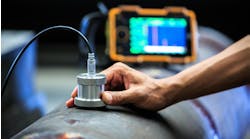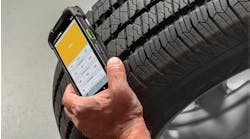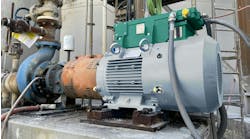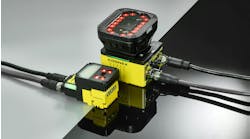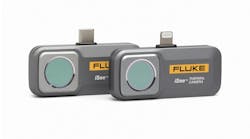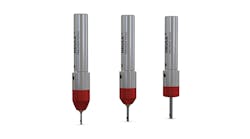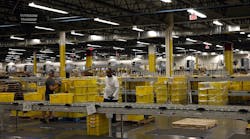At such point, the manufacturer faces a critical "build or buy" decision. Do you deviate from your core competency and try to build the electronic assembly yourself, or is it wiser to outsource the work? This is a particularly crucial decision when the electronic components may only represent a small part of a larger product.
At present, the scales seemed to be tipping in favor of outsourcing the builds. The projected size of the global market for electronics contract manufacturing is expected to leap a whopping 54% from 2013 levels to the lofty reach of $670 billion by 2018—according to Statista.com, a Web portal that draws from more than 18,000 sources.
Such figures underscore the trend toward the outsourcing of subassemblies and the electronics and wiring within. Even some PC board manufacturers have found it more expedient and cost-effective to outsource some of their work to box-build specialists, rather than shoulder that extra work in-house.
"We have cable equipment here, and can do all of the box building ourselves, but for some production runs it doesn’t make sense to invest in the people, expertise or equipment for making a particular cable when we know we can get a fair price and good turnaround with a trusted subassembly partner," says Jim Ayars, president of J&J Technologies, Inc.—an ISO certified provider of turn-key and consignment electronic manufacturing services, specializing in high quality, quick-turn of prototype to medium volume surface-mount and through-hole assemblies. "In this manner we can pass on our savings to the benefit of our customers."
Why D-I-Y No Longer Makes Sense
Many manufactures still lay full claim to the creation and design of their products. They typically handle final assembly, along with most aspects of the systems engineering process. But when drilling down to the details of incorporating electrical and electronic subassemblies, and wiring it all together, many manufactures can no longer justify shouldering the entire process in-house.
This can be the case even for OEMs that begin making their own electro-mechanical assemblies, but discover they cannot scale up quickly enough to keep up with production demands at higher volumes.
Given the obstacles of making every part themselves, many OEMs are instead simply purchasing the necessary subassemblies with the circuit cards and mechanical devices already inserted and wired together according to the manufacturer’s specifications – the so-called box build.
"While cabling and wiring is one of our competencies, occasionally we can save time and money for us and our customers by outsourcing a particular cable" says Ayars. "For example, we recently worked with the engineers at Electro-Prep who handled a special cable that goes into our assembly. We receive a reliable product, on deadline, at a cost-effective rate, so it’s a perfect partnership."
Wareham, MA-based Electro-Prep is a turn-key and consignment contract manufacturer of wire harnesses, cable assemblies, electro-mechanical assemblies and box-builds.
Driving the appeal of outsourcing assemblers is the fact that these companies specialize. In the case of Electro-Prep, their ability to connect coax, ribbon cable, multi conductor cable, and mechanical components is hard to duplicate cost effectively.
"Every part you build up has specific tooling, so it’s a larger investment each time you want to do something new," Ayars points out. "There’s a big benefit in utilizing someone that already has that equipment so you can keep your non-recurring costs to a minimum."
"Some manufacturers invest in advanced assembly technology; they purchase the machines and integrate them into their own business," Ayars continues. "But this technology is expensive and needs a certain level of volume to be sensible. At some point up the supply chain you have to stop and take advantage of what a specialized box builder does more economically and faster, and work out a partnership."
n "time to market"anks higher than "cost to produce," the decision to outsource subassemblies makes even more sense. The rush to market a new product often precludes the time required to acquire the talent and infrastructure to match what subassembly contractors can do on short notice.
"In one instance, Electro-Prep already had the competency for a particular piece of work we needed quickly, and they could get it out in parallel with our work, so that we could integrate the build for a faster response for our customer," says Ayars.
Further fueling the renewed acceptance of using subassemblers is the high level of quality coming out of U.S. based companies such as Electro-Prep. Process certifications such as ISO 9001, along with training standards like IPC/WHMA-A-620 (assembly) and J-STD-001 certification (soldering) help ensure a high standard of reliability. UL and CSA listings, along with RoHS manufacturing capabilities, help reduce liability for the parent company ordering the product. Working with onshore suppliers also enables quicker resolution of any issues.
So compelling the argument for buying built-to-spec boxes from subassembly houses, that even some large contract manufacturers are opting to farm out the wire and the cable work. The profit margin is simply too low for them to do it themselves. They, like so many OEMs, prefer to contract with a subassembly provider who can help them grow.
"It doesn’t matter if the box builder is large or small, for me, the ability to meet target production dates is most important," Ayars sums up. "If they have an expertise in wiring up cables that we don’t have, I’ll opt for that route every time."
Torrance, California-based author David Rizzo has penned three trade books, 200 technical articles and 500 newspaper columns. Rizzo covers a wide range of topics, specializing in technology, medicine and transportation.
